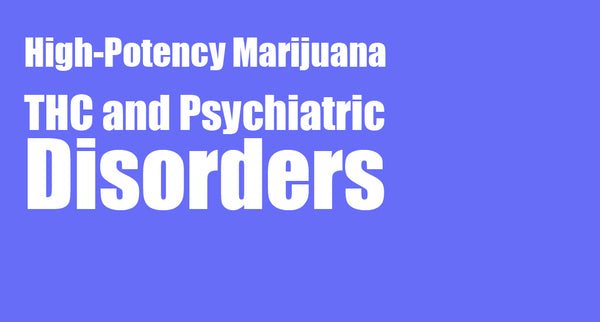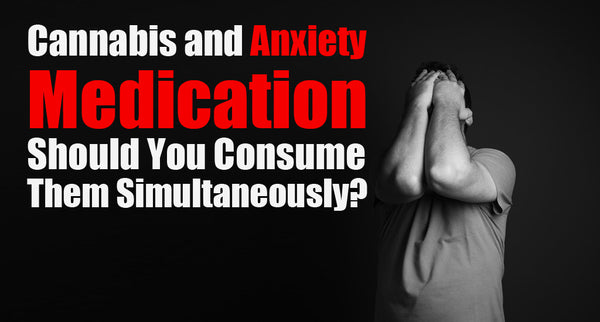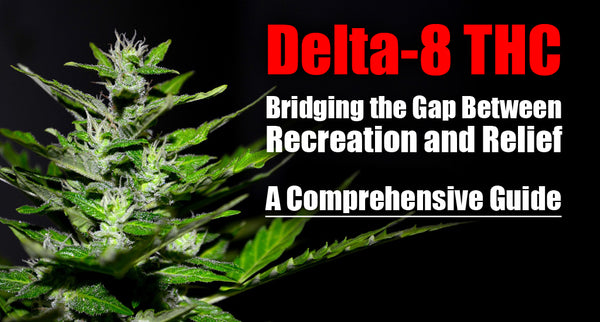
Should You Consume Cannabis and Anxiety Medications Simultaneously?
Anxiety and depression disorders impact a significant portion of the population, with individuals either grappling with these conditions themselves or witnessing their effects in the lives of those dear to them. In 2018, statistics indicated that 7.2% of Americans went through a major depressive episode.
Regrettably, the Anxiety and Depression Association of America forecasts that 31% of adult Americans will confront an anxiety disorder during their lifetime. Consequently, a considerable number of individuals in the nation resort to pharmaceutical interventions, including antidepressants (which are also employed to manage anxiety) and even recreational substances, to address these mental challenges.
Antidepressants and Anxiety Disorder Medications
Anxiety and depression treatments encompass diverse forms, frequently overlapping not only within their categories but also extending to conditions like OCD, ADHD, and pain management. Let's delve into the details.
Antidepressants
Antidepressants are commonly prescribed for clinical depression, but they are also frequently utilized to treat anxiety disorders. Clinical depression is characterized by The American Heritage® Dictionary of the English Language as "a state of depression and anhedonia so severe as to require clinical intervention."
Anhedonia refers to the inability to derive pleasure from rewarding and mood-enhancing activities, a state closely linked to anxiety disorders. Anhedonia is believed to hinder the recovery of clinical anxiety disorders, which is why antidepressants are often prescribed for anxiety as well.
SSRI (Selective Serotonin Reuptake Inhibitor)
- Include drugs like: Lexapro, Zoloft, Prozac, Luvox, Celexa
- Increase levels of serotonin, the “feel good” chemical, in the brain
- Serotonin is a neurotransmitter, or a chemical messenger
- After being used for signaling, serotonin is usually reabsorbed back into nerve cells
- SSRIs block this “reuptake” process, allowing serotonin to continue flowing
- SSRIs are commonly used for depression, as well as anxiety disorder, and OCD
SNRI (Serotonin-Norepinephrine Reuptake Inhibitor)
- Includes drugs like: Cymbalta, Pristiq, Effexor XR, Savella
- SNRIs are a newer variant of antidepressants
- SNRIs also block serotonin reuptake
- Norepinephrine is also a neurotransmitter, linked to alertness and energy
- SNRIs also block the reuptake of norepinephrine back into nerve cells
- This allows norepinephrine to be in surplus in the brain
- SNRIs are commonly used for depression, anxiety, bipolar disorder, fibromyalgia, chronic pain and sleep disorders.
Anxiety Medications
Benzodiazepenes are commonly prescribed for anxiety disorders, and while they can be effective when used as directed, they also possess a potential for misuse. These medications have therapeutic value when appropriately prescribed and consumed.
- Benzodiazepines, sometimes called “benzos”, work by raising levels of GABA neurotransmitters in the brain.
- Gamma-Aminobutyric Acid (GABA) is associated with states of calmness or sedation
- Benzodiazepines include: Xanax, Valium, Librium, Paxipam, Centrax
- Benzos can be used, in a clinical setting, to treat severe anxiety, insomnia, and epilepsy (due to muscle relaxation).
- These types of drugs have a propensity to be overused and abused
Cannabis and Anxiety/Depression Disorders
A notable proportion of individuals seeking relief from anxiety or depression through medication might also turn to cannabis due to its reputed calming and contemplative outcomes. Numerous users claim to utilize cannabis to alleviate anxiety, particularly in cases of social anxiety disorders. Research indicates that THC exhibits efficacy in lower doses, while CBD appears effective across various tested dosages. Nonetheless, a pertinent inquiry emerges: should there be apprehension regarding the simultaneous consumption of marijuana alongside anxiety or depression medications?
There are a few crucial considerations to address. Interactions between cannabis and prescription medications can vary, potentially influencing the effectiveness of either substance. Moreover, the physiological responses to combining these substances can be unpredictable and might lead to heightened side effects or altered therapeutic outcomes. It's essential for individuals considering this combination to consult their healthcare provider, who can provide personalized guidance, minimize potential risks, and ensure that the treatment plan aligns with their specific needs.
The Effect Of Cannabis On The Brain
Addressing the question of whether combining cannabis with other medications poses risks requires an understanding of how cannabis impacts the brain and body. Upon consumption in any form, cannabis triggers minuscule receptors within the brain known as "cannabinoid receptors." These receptors facilitate the reception of endocannabinoids, naturally released by the human body to maintain brain-body connectivity.
Smoking cannabis prompts the generation of "phytocannabinoids" (such as CBD, THC, etc.), which substitute the naturally occurring cannabinoids. Consequently, cannabis consumption alters the communication between the brain and body. This interaction complexity underscores the potential for interactions between cannabis and other medications, potentially influencing their effects and safety. It's essential to consult a healthcare professional when contemplating the combined use of cannabis and medications to ensure informed decisions and minimize potential risks.
Effects Of Mixing SSRIs With Cannabis
SSRIs, or selective serotonin reuptake inhibitors, are the predominant medications prescribed for managing depression and anxiety. Research suggests that CBD can impede the metabolism of SSRI antidepressants in the body, potentially elevating the average serotonin level.
However, caution is crucial due to the possibility of Serotonin syndrome, a potentially serious condition resulting from excessive serotonin levels. Interestingly, anecdotal accounts from cannabis users imply that smoking THC-rich cannabis strains appears to be safe. Notably, many THC-rich strains also contain trace amounts of CBD. To ensure safety while combining cannabis with SSRIs, it's advisable to assess the CBD and THC concentrations in the cannabis product. Consulting a healthcare professional is paramount to make informed decisions, mitigate risks, and manage potential interactions effectively.
Effects Of Mixing SNRIs With Cannabis
Serotonin-norepinephrine reuptake inhibitors (SNRIs) represent a more contemporary category of antidepressant drugs. Given their relative novelty, limited data exists to definitively confirm or refute the potential risks associated with combining SNRIs and marijuana. Notably, THC in cannabis has been observed to diminish SNRI levels in the context of using the antidepressant Cymbalta.
This suggests a likelihood of similar inhibitory effects on other SNRIs when taken alongside cannabis. It is advisable to engage in a discussion with a medical professional to ascertain whether your specific medication is compatible with cannabis consumption. Seeking guidance from a physician is essential to understand potential interactions, mitigate risks, and make informed decisions about concurrent medication and cannabis use.
Effects Of General Anxiety Medications With Cannabis
Indeed, medications targeted at anxiety management, distinct from SSRIs and SNRIs, fall within the benzodiazepine class. Prominent benzodiazepines like Xanax, Valium, and Librium are widely employed. However, these medications can interact detrimentally with cannabis. Notably, Xanax exhibits precarious interactions with THC, CBD, opioids, alcohol, and other central nervous system depressants.
Furthermore, smoking cannabis can adversely affect central nervous system efficiency, potentially impeding the body's capacity to metabolize benzodiazepines. This intricate interplay can amplify the risk of adverse effects or diminish medication efficacy. It is prudent to be cautious about combining benzodiazepines with cannabis and other substances. If considering this combination, consulting a healthcare professional is vital to assess potential interactions, ensure safety, and optimize treatment outcomes.
More effects of mixing anxiety medications and weed can include:
- Impaired memory
- accidents resulting from excessive sleepiness
- lower heart rate
- impaired judgement
- increased panic attacks
- slurred speech
- low respiratory levels
Although some use cannabis to treat anxiety disorders, unfortunately, it can not be recommended to consume cannabis along with the aforementioned medications, and those alike.
Conclusion
Society accommodates both recreational and medicinal drug use, with certain substances having dual roles. Cannabis, for instance, serves as a recreational choice while also holding significant therapeutic potential, particularly for managing depression and anxiety disorders. Nevertheless, if an individual is already under prescription medication for these disorders, careful deliberation about the safety of combining cannabis becomes paramount.
Research suggests that CBD can potentially interact unfavorably with some SSRI medications, while THC appears more compatible, as indicated by anecdotal reports from cannabis users. The relationship between SNRIs and cannabis remains less explored due to the novelty of these medications, although theoretically, cannabis might impact their efficacy.
However, the interaction between cannabis and benzodiazepines, commonly used to address anxiety disorders, is distinctly negative. This bears weight when contemplating the initiation of a new medication or deciding whether to use cannabis concurrently. Engaging in a conversation with a physician or medical professional before mixing medication and cannabis is imperative in either scenario. This consultation ensures comprehensive understanding, mitigates potential risks, and facilitates informed decisions regarding treatment choices and cannabis use.



